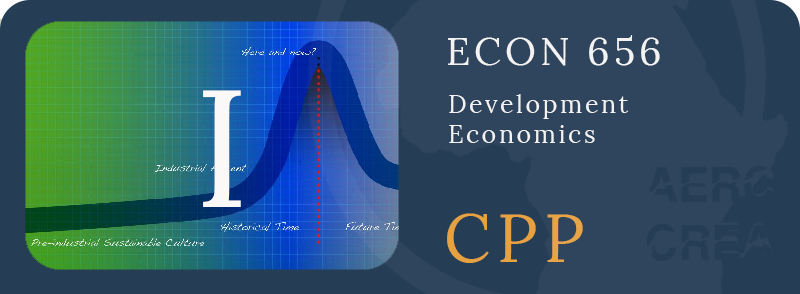
Development Economics I
This course is meant to expose students to conceptual, methodological and policy issues in Development Economics. While it is essential for students to understand the scope of development economics and methodologies involved, it is important to appreciate the controversies arising from them. At the end of the course the students are expected to understand development issues facing the developing world in general and Africa in particular, and be able to carry out theoretical and policy relevant analysis.
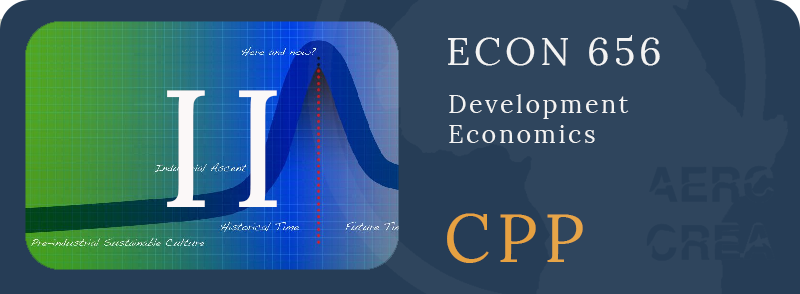
Development Economics II
This course is meant to expose students to conceptual, methodological and policy issues in Development Economics. While it is essential for students to understand the scope of development economics and methodologies involved, it is important to appreciate the controversies arising from them. At the end of the course the students are expected to understand development issues facing the developing world in general and Africa in particular. They should also be able to carry out theoretical and policy relevant analysis
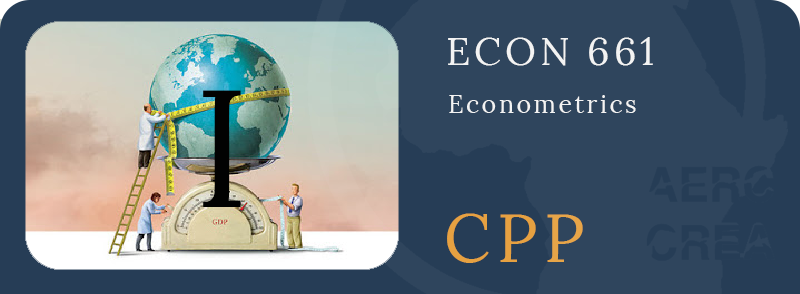
Econometrics I
The objective of this two-semester PhD course is to provide advanced econometric tools for the applied and policy problems relevant to the African context, while striking a balance between theory and applications. A crucial aspect of the course is the provision of sound theoretical formulations, the rigorous application of techniques to applied contexts, including a variety of models that find application in the real world. Students will also learn to handle standard menu-driven econometric software, and high-level programming language developed for basic and advanced econometric studies.
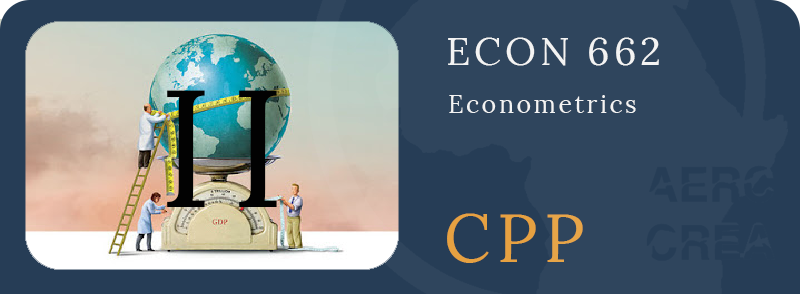
Econometrics II
This course is sub-divided in two parts:
- The first part introduces the concept of causal inference. The first part (causal inference) starts with randomized experiments and counterfactual outcomes, subsequently introducing matching methods and other methods with nonparametric identification. Since causal inference heavily uses nonparametric tools, one may consider starting with nonparametric topics
- The second part covers structural and parametric econometrics.

Environmental Economics I
The overall objective of this course is to provide graduate students with an understanding of environmental economics such that, by the end of the course, you will be thoroughly familiar with the 'state of the art' in this special area of economics. The specific objectives include:
- Exposing you to advanced theories and models of environmental economics
- Enabling you to understand and appreciate the environment-economic linkages
- Assisting you in acquiring the capacity to apply environmental models to research and policy issues in the area of environmental economics with specific reference to sub-Saharan Africa
- Acquainting you with the dynamics of the global environment and the implications for development in sub-Saharan Africa.
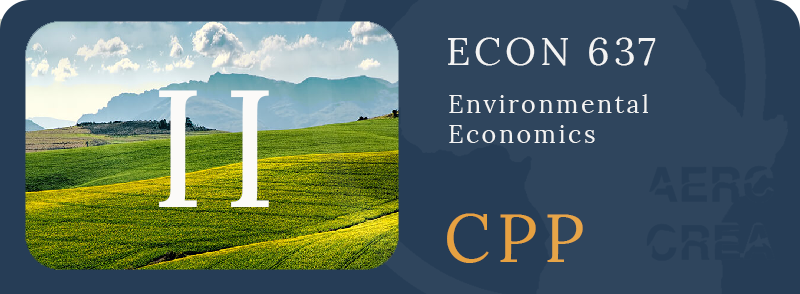
Environmental Economics II
Objectives
The overall objective of this course is to provide graduate students with an understanding of environmental economics such that, by the end of the course, you will be thoroughly familiar with the 'state of the art' in this special area of economics. The specific objectives include:
- Exposing you to advanced theories and models of environmental economics
- Enabling you to understand and appreciate the environment-economic linkages
- Assisting you in acquiring the capacity to apply environmental models to research and policy issues in the area of environmental economics with specific reference to sub-Saharan Africa
- Acquainting you with the dynamics of the global environment and the implications for development in sub-Saharan Africa.
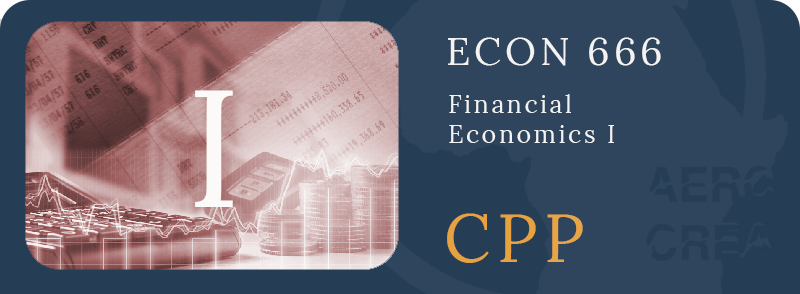
Financial Economics l
The purpose of the course is to provide a comprehensive instruction in contemporary Financial Economics at an advanced level while simultaneously providing prerequisite introductory knowledge. The course will emphasise theoretical as well as the empirical aspects of each topic in the syllabus. Semester l is expected to completed within 60 hours.
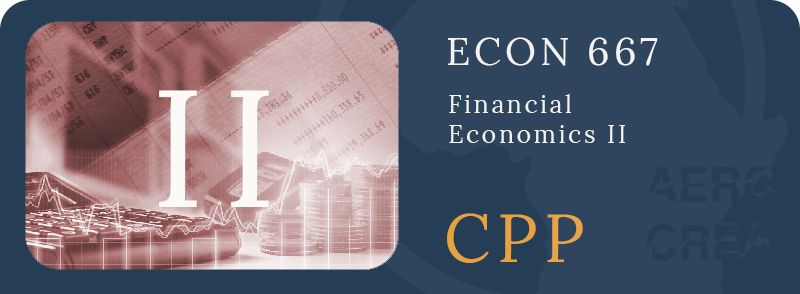
Financial Economics ll
Objectives
The purpose of the course is to provide a comprehensive instruction in contemporary Financial Economics at an advanced level while simultaneously providing prerequisite introductory knowledge. The course will emphasise theoretical as well as the empirical aspects of each topic in the syllabus. Semester l is expected to completed within 60 hours.
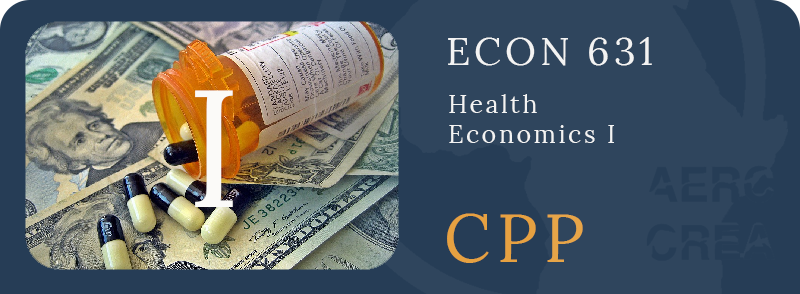
Health Economics l
This course has been designed primarily for those who wish to specialize in Health Economics at the Ph.D. level. It builds on what has been covered in the Master’s module of the Joint Facility for Electives or its equivalent. For each topic, examples and applications to African and other developing countries will be provided.
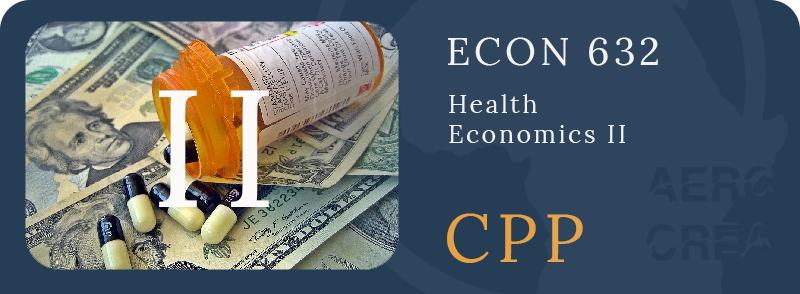
Health Economics ll
Objectives
This course has been designed primarily for those who wish to specialize in Health Economics at the Ph.D. level. It builds on what has been covered in the Master’s module of the Joint Facility for Electives or its equivalent. For each topic, examples and applications to African and other developing countries will be provided.
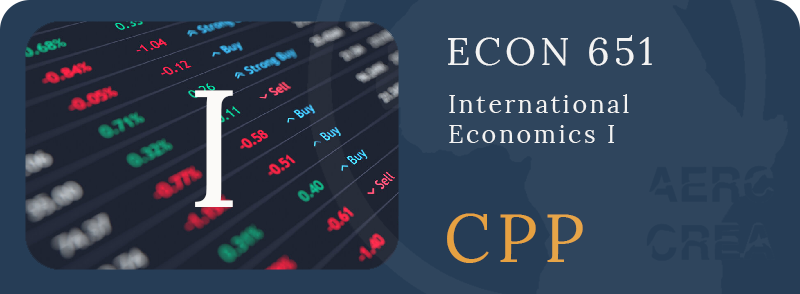
International Economics l
Trade theory, as economic theory, has typically
been distinguished according to positive or normative analysis. In this framework, positive theory seeks
to understand the determinants of the pattern of trade and the terms at which
trade takes place. The normative seeks to ascertain whether agents and/or
countries gain or lose by trading. This seems a worthwhile distinction – it is
possible to determine the results of certain conditions apart from whether they
are desirable or not. If anything, the reader is advised to be careful that
those who assert the distinction apply it scrupulously.
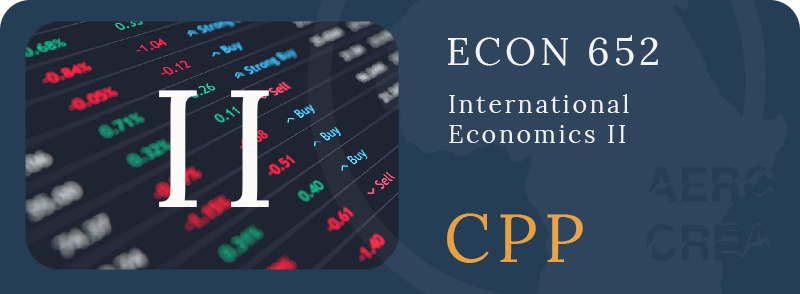
International Economics ll
Objectives
Trade theory, as economic theory, has typically been distinguished according to positive or normative analysis. In this framework, positive theory seeks to understand the determinants of the pattern of trade and the terms at which trade takes place. The normative seeks to ascertain whether agents and/or countries gain or lose by trading. This seems a worthwhile distinction – it is possible to determine the results of certain conditions apart from whether they are desirable or not. If anything, the reader is advised to be careful that those who assert the distinction apply it scrupulously.
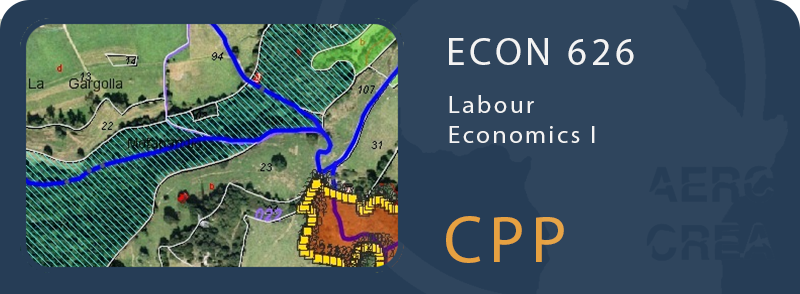
Labour Economics 1
Objectives
The primary objective of the course is to equip students with the analytical tools required for examining individual and institutional behaviour underpinning labour market phenomena and its impact on the wellbeing of society. A key thrust of this course is to expose students to methodological approaches in conducting rigorous labour market research to inform policies in developing countries. At the end of the course the student should be able to appreciate the scope of the labour market, identify possible factors underlying labour market outcomes, and evaluate public policy impacts on labour and social outcomes.

Labour Economics II
Objectives
The primary objective of the course is to equip students with the analytical tools required for
examining individual and institutional behaviour underpinning labour market phenomena and its
impact on the wellbeing of society. A key thrust of this course is to expose students to
methodological approaches in conducting rigorous labour market research to inform policies in
developing countries. At the end of the course the student should be able to appreciate the scope
of the labour market, identify possible factors underlying labour market outcomes, and evaluate
public policy impacts on labour and social outcomes.
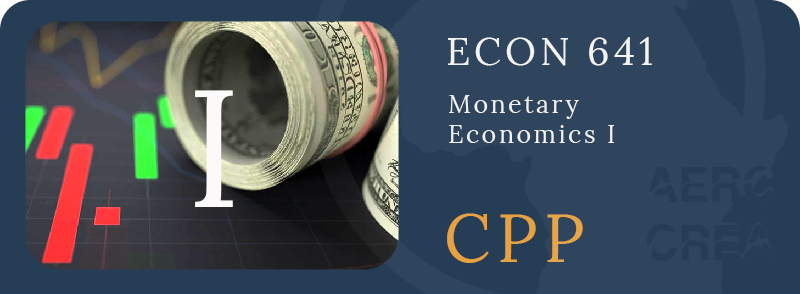
Monetary Economics l
The course seeks to develop students’ competence and research skills for scholarly analysis of theoretical and empirical issues relating to money, financial system and monetary policy with special reference to African economies.
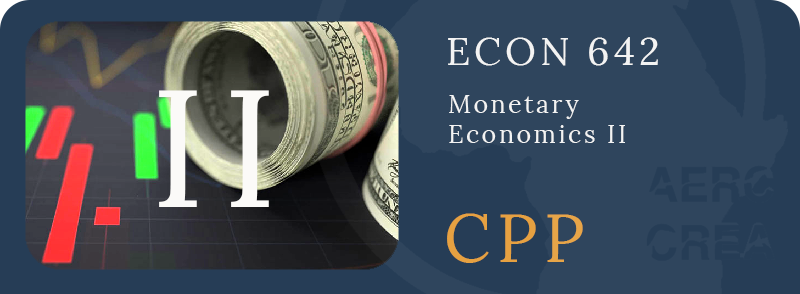
Monetary Economics ll
Objectives
The course seeks to develop students’ competence and research skills for scholarly analysis of theoretical and empirical issues relating to money, financial system and monetary policy with special reference to African economies.
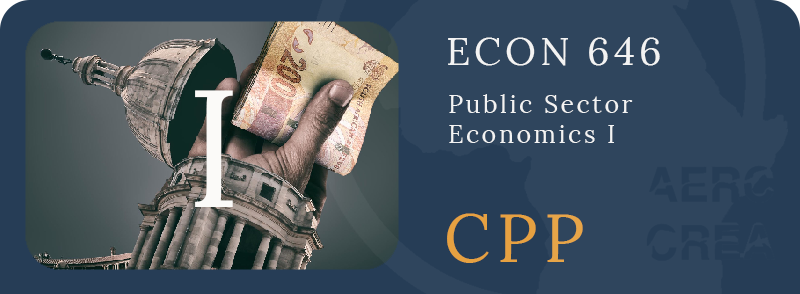
Public Sector Economics l
This is a PhD level course in Public Sector Economics. The course covers the role and size of the public sector, including the rationale for public sector interventions such as market and government failure and distributional concerns of welfare, the role of the private sector in the production and provision of public goods and services.
The course covers advanced public economic and expenditure theory, public expenditure policy, including assessment of government social protection programs, public projects and investment management, the theory of taxation as well as their applications, including but not limited to the economics of taxation, taxation of income, wealth, and consumption, tax incentives, tax compliance and enforcement, and tax reform. Also addressed are issues related to fiscal federalism and public debt. Also included in the revised edition is behavioral economics.
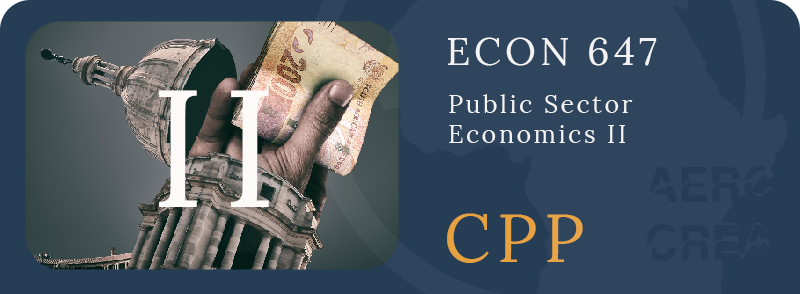
Public Sector Economics ll
Objectives
This is a PhD level course in Public Sector Economics. The course covers the role and size of the public sector, including the rationale for public sector interventions such as market and government failure and distributional concerns of welfare, the role of the private sector in the production and provision of public goods and services.
The course covers advanced public economic and expenditure theory, public expenditure policy, including assessment of government social protection programs, public projects and investment management, the theory of taxation as well as their applications, including but not limited to the economics of taxation, taxation of income, wealth, and consumption, tax incentives, tax compliance and enforcement, and tax reform. Also addressed are issues related to fiscal federalism and public debt. Also included in the revised edition is behavioral economics.